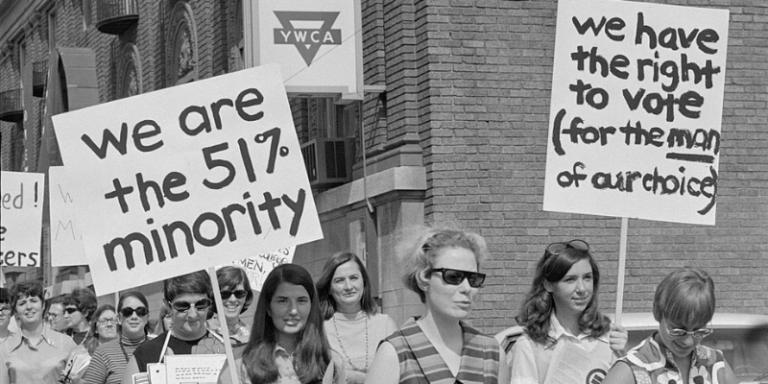How One Man From Tennessee Saved Suffrage
Harry T. Burn cast the deciding vote to ratify the 19th Amendment, all thanks to a letter from his mother.
By: James Fite | August 18, 2020 | 477 Words

Suffrage 19th Amendment (via Getty Images)
In the United States, the right to vote is shared by men and women – but that wasn’t always the case! The 19th Amendment to the U.S. Constitution granted women suffrage, or the right to vote, in 1920.
The fight for women’s suffrage began many years earlier, with some of the best-known leaders in the movement also fighting for abolition – the end of slavery – and Prohibition – which outlawed alcohol. By 1920, all three of these goals had been met, but it had been a long, hard fight. As Sarah Cowgill explained in her article on the 19th Amendment, the right to vote regardless of gender came down to one man in the state of Tennessee, Representative Harry T. Burn.
By mid-1920, both houses of Congress had voted for the 19th Amendment, and 35 of the 36 states needed had ratified it. There were only five states left, and Connecticut, Vermont, North Carolina, and Florida refused to consider it. That left only Tennessee. On August 18, 1920, the Tennessee House of Representatives gathered. People wore rose-shaped pins to show which side they were on. Those who supported suffrage wore yellow roses. Those who opposed wore red roses. While the state Senate had already voted to grant women the right to vote, the House was evenly split.
Rep. Burn actually wore a red rose on his lapel. He had been pressured by many in his district to vote against suffrage. He voted to table, or delay, the ratification both times that vote came up. But he also had a letter from his mother, Febb E. Burn, in his suit pocket. In it, she had written, “Hurrah and vote for suffrage, and don’t keep them in doubt.”

19th Amendment (via Getty Images)
About her son’s re-election campaign and worries that supporting suffrage might cost him his seat, she said: “I hope you see enough of politicians to know it is not one of the greatest things to be one. What say ye??” So, after the vote to table tied 48-48 twice in a row, Rep. Burn followed his mother’s advice. When his name was called in the ratification roll call, he answered, “aye,” and took off his red rose.
“I knew that a mother’s advice is always safest for a boy to follow and my mother wanted me to vote for ratification,” Rep. Burn later said about his decision to change sides. “I appreciated the fact that an opportunity such as seldom comes to a mortal man to free 17 million women from political slavery was mine.”
At 24, he was the youngest man in the legislature. While he might have worried that this vote would cost him his seat, he ended up being just fine. He won that re-election, and it was just the beginning to a long career in politics.
















